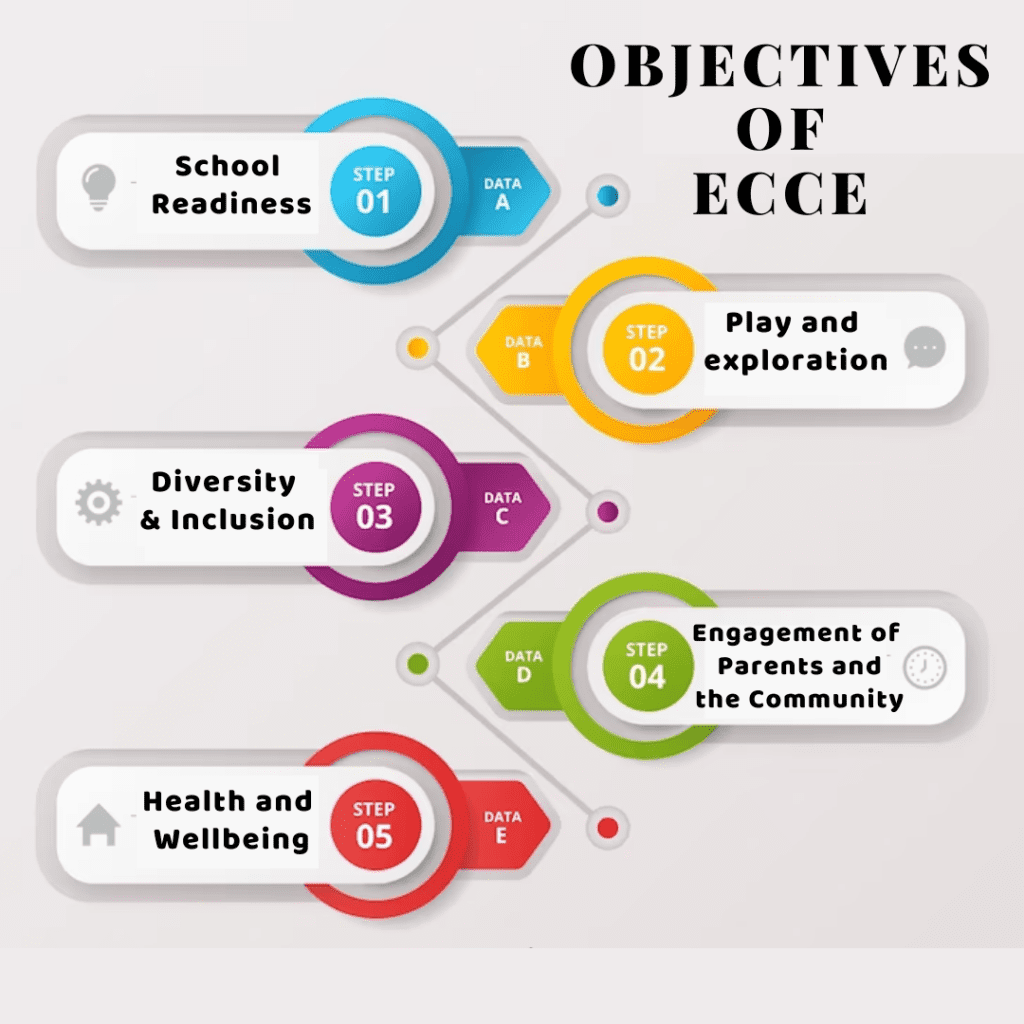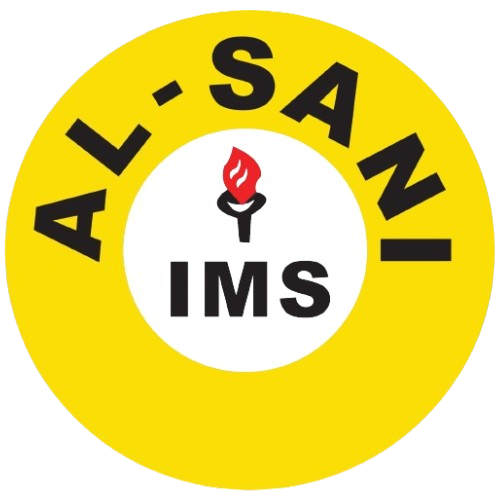EARLY CHILDHOOD CARE EDUCATION ECCE
What is Early Childhood Education?
Early Childhood Care and Education (ECCE) refers to all programs and initiatives designed
to support the care, development, and education of young children from birth up to around 8
years old, typically until the start of primary school ECCE encompasses a broad range of
services including child care for infants and toddlers (0-2 years) and pre-primary education
for children aged approximately 3 to 6 or 8 years.

Key Aspects of ECCE
- Age Range: ECCE covers children from birth to the start of formal primary education, generally up to 8 years old.
- Settings: It can be delivered in various settings such as schools, community centers, homes, or specialized early childhood institutions.
- Components: ECCE includes early childhood educational development (child care) for ages 0-2 and pre-primary education for ages 3 to the start of primary school.
- Curriculum Focus: The ECCE curriculum promotes holistic developmentphysical, cognitive, emotional, social, and ethical-through play-based, activitybased, and inquiry-based learning approaches.
- Learning Areas: It emphasizes early literacy and numeracy, social-emotional skills, physical development, creativity and artistic expression, environmental awareness, and multilingual development.
Importance of ECCE
ECCE is critical because early childhood is a period of a rapid brain development and high adaptability, laying the foundation for lifelong health, zwell-being, learning and socio-emotional skills. Quality of ECCE is to help children develop creativity, critical thinking, communication, collaboration and problem solving skills, preparing them for formal schooling and future success.
Objectives of ECCE
- Key objectives of ECCE include:
1. Promoting Development: Facilitate the overall development of children, ensuring they reach their full potential in various areas including language, motor skills, and social interaction.
2. Quality Learning Environment: Create safe, inclusive, and stimulating learning environments that encourage exploration, creativity, and critical thinking.
3. Support for Families: Involve families and communities in the education process, providing them with resources and support to enhance their children’s learning experiences.
4. Equity and Access: Ensure that all children, regardless of their background, have access to quality early childhood education and care services.
5. Lifelong Learning Foundation: Establish a strong foundation for lifelong learning by fostering a love for learning and curiosity in children.
6. Health and Nutrition: Promote health and nutrition as fundamental components of children’s growth, ensuring they are physically healthy and ready to learn.
Why ECCE is different?
Early Childhood Care and Education (ECCE) differ from other education systems primarily in its age focus, learning approach, goals, and settings:
- Age Range: ECCE targets children from birth up to the start of primary education (typically ages 0–8), whereas other systems like elementary education focus on older children, usually from kindergarten through 5th grade or beyond.
- Holistic Development vs. Academic Focus: ECCE emphasizes holistic development including physical, social, emotional, cognitive, language, and creative growth through play-based, child- led learning. In contrast, elementary education builds on these foundations but shifts toward structured academic achievement in reading, writing, math, and sciences with a teacher-led curriculum.
- Learning Approach: ECCE uses a play-based, inquiry-driven, and child-centric pedagogy where children often lead their learning with teacher support, promoting uriosity and creativity. Other systems tend to be more structured and curriculumdriven, with teachers directing learning activities.
- Settings: ECCE can occur in diverse environments such as preschools, early learning centers, community or home-based care, and is not confined to formal classroom settings. Elementary and other formal education systems typically take place in schools with more formalized classrooms.
- Curriculum and Flexibility: ECCE curricula are designed to be flexible, focusing on the child’s interests, developmental needs, and inclusive practices. For example, Finland’s ECCE curriculum promotes individualized education plans and holistic learning throughout the day, integrating care and education seamlessly. Other education systems tend to have more rigid, age-specific curricula and standardized assessments.
- Purpose and Outcomes: ECCE aims to prepare children for life and schooling by fostering readiness in areas like health, social emotional skills, language, cognitive development, and approaches to learning. Other systems focus more explicitly on academic skills and knowledge acquisition
